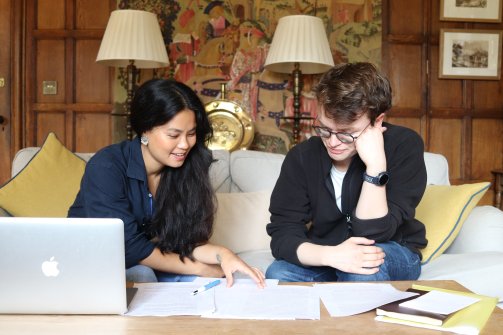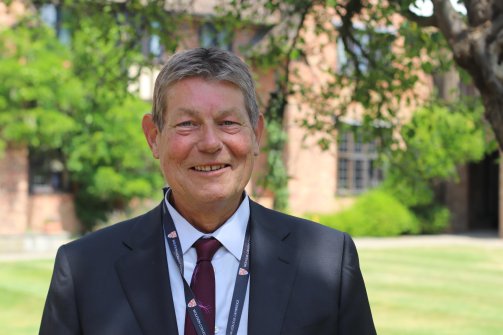New Press Fellows arrive at Wolfson

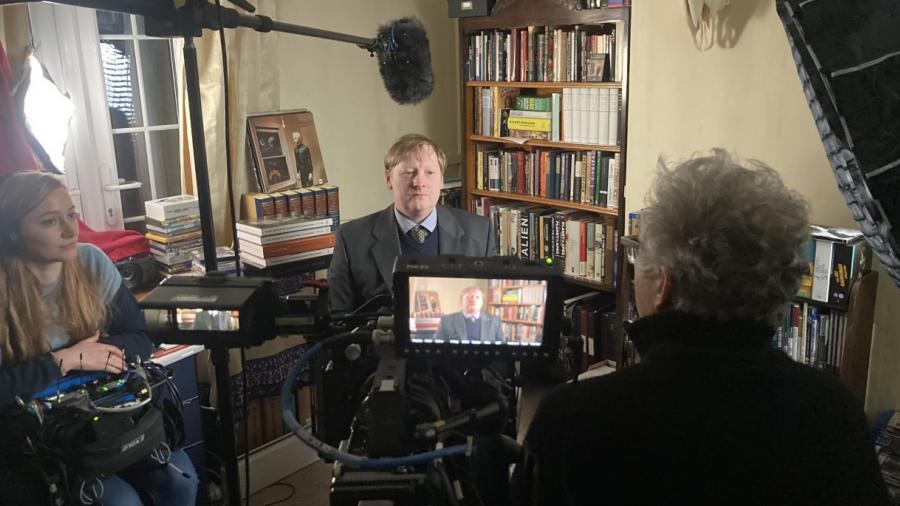
January 2022 Member of the Month: Paul Sutton

1) How did you come to study at Wolfson College?
I'd completed my B.A. (Hons) History and thought that Wolfson and I would be a good fit for my postgraduate studies. I'm an Englishman, with a deep-rooted love and understanding for English arts and letters, but I've always considered myself to be a citizen of the world. Of all the Cambridge colleges, Wolfson seemed to me to be the most international, both in terms of the student body and in the College's outlook.
2) What is your current occupation and how did you get into this role?
I'm an independent book publisher. I also do consultancy work and scriptwriting in the international film industry. On completing my studies at Wolfson, I was given a small grant from the University to help towards my costs in founding and editing Camera Journal, the Cambridge University film journal. This was a lavish 100-plus page bi-annual affair that only lasted two issues because it was so well received: copies had somehow found their way to Methuen and I. B. Tauris, both of whom contacted me directly to write books for them.
Though I enjoyed the following years of researching and writing, I missed using the design skills and editorial judgments I had cultivated when publishing the film journal. And although I was paid a less-than-living-wage advance to write books for large publishers, I was not satisfied they kept all the royalties. Instead of sulking about this, I decided to be a publisher.
3) What do you most enjoy about your job?
I enjoy the freedom not to be held back by the decisions of others. I get the sincere satisfaction of making beautiful books that add to mankind's knowledge; and I enjoy championing the work of artists, writers, and musicians whose work I think has been undervalued.
4) How have your studies at Wolfson helped you in your career?
Christine Counsell, my tutor at Wolfson, gave me the confidence to be independent. She led by example and was liberatingly good. She made me aware that coasting on natural intelligence was not good enough, and that we had to aspire to our full potential – to be world-class. Christine also made it very clear that an educated life should not be lived in libraries and classrooms alone.
The best 'help' that Wolfson gave my career actually came during a Wolfson Howler. The only time I could get friends from other Colleges to visit Wolfson was when there was a good line-up at the famous comedy shows. At a show headlined by Greg Davies, I was thrilled to be able to observe and study over the course of the evening, the important differences between someone doing something 'for fun' or 'for experience' or 'because it was a job', and someone who had consciously chosen to excel at their craft, and who had put in the years to do just that. It was a very important lesson in the differences between amateurism and professionalism, or between failing and succeeding.
5) What is your fondest memory of your time at Wolfson?
Two memories stand out and always bring a warm glow. The first was befriending a man from mainland China, Zhang Jiahua from Guangdong, who was at Wolfson studying for his MPhil. It is difficult to convey now just how exotic and unusual and pleasant it was, twenty or so years ago, for an Englishman to be able to spend whole days in England with a man from mainland China. For the whole of my parent's life and for most of mine to that point, China and its people had been closed off to the West.
The other fondest memory is of always starting the weekends by relaxing on a lovely leather sofa in the Snooker Room and reading all the newspapers. It was there when, to my delight one Sunday morning, I found that all the major papers carried laudatory reviews of my first book, 'Lindsay Anderson, The Diaries'.
6) What is the best piece of advice you've ever been given?
At school I was taught, "If something is worth doing, then do it well". I learned from my time at Wolfson that if you want to succeed as an independent in the creative world, it is advisable to add to that: "If something is worth doing, then do it to a standard that is world-class".
7) Which book has had the greatest impact on you?
Probably ‘The Poetry and Letters of Lord Byron’. I was so inspired by his intelligence, his accounts of his travels, his wit, his style, that I read many of the many biographies about him, and I visited many of the places where he had lived.
8) Can you give example or two of the highlights of your current work life?
One highlight was being invited by the great American filmmaker, John McTiernan, to spend ten days with him on his ranch in Wyoming to be a history adviser on a script he was preparing to film. He was so impressed by my work rewriting the script that I ended up staying for months and was invited to return year after year.
More recently, I was interviewed by the BAFTA-nominated filmmaker, Randall Wright, for a Sky Arts documentary film he is making about the musician, Gary Numan, that will be broadcast in June 2022. I became an accidental authority on Mr. Numan's writings and music, soon after he was awarded the Ivor Novello Prize for Musical Inspiration. Surprised that no one else had written one, I wrote a small book called 'Understanding Gary Numan'. It sold well enough for me to decide to design, annotate, and publish two very large books about him.
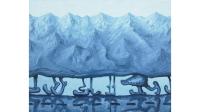
Visit Wolfson's latest exhibition 'After News Before Bed' featuring work by emerging artist Enej Gala, winner of the Wolfson Royal Academy Schools Graduate Prize.
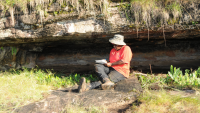
How does the interpretation of geometric rock art in Uganda shed light on the societal and cultural experiences of African Pygmy forest hunter-gatherers?

Dive into the Cambridge innovation ecosystem with a visit to the Cambridge Science Park.

This event is the third of three roundtables that Wolfson's REACH Research Hub will be organising over the academic year under the heading ‘Hierarchies of Racism?’
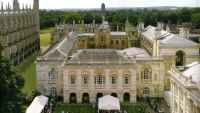
Join Emeritus Fellow Dr Brian D Cox for a talk which will outline the development of the University from its origins in 1209 until the present day.






